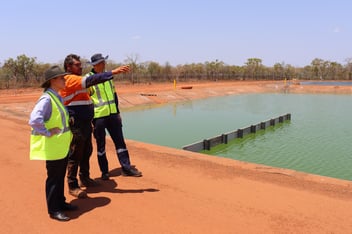Kidney disease may be connected to nitrates in drinking water
Elevated levels of nitrates in drinking water could be linked to kidney disease in some West Australian towns, an expert warns.
Chief investigator for the Western Desert Kidney Health Project Dr Christine Jeffries-Stokes told the ABC a surprising number of people she studied had an elevated albumin-creatinine ratio in their urine, which indicated kidney damage.
"We found that the risk factors for kidney disease and diabetes – that is, protein leaking in your urine, blood in your urine, blood pressure problems and the early signs of diabetes – were actually a problem for everybody, much more common in the non-Aboriginal community than we expected," she said.
The three-year study of more than 1000 people found just in excess of one third of Indigenous participants, and a quarter of non-Indigenous, had an elevated albumin-creatinine ratio.
“[This] suggested that environmental factors or exposures probably were more significant than we had thought,” Jeffries-Stokes said.
"So then we went looking for what those factors might be and obviously lack of access to fresh food is a problem for everyone and exercise opportunities are a problem for everyone, but we also found that the water quality probably is a significant factor as well."
The study aimed to determine the prevalence of type-2 diabetes and end-stage renal disease, and was conducted across five Indigenous communities and five towns in WA's Goldfields and the Western Desert regions.
Two of the communities studied had more than 50mg/L of nitrate in their drinking water – more than double the recommended limit for adults.
The finding comes after the state Auditor General tabled a report which found unsafe levels of nitrates or uranium contamination in the water supply of one in five communities under the Remote Area Essential Services Program.

